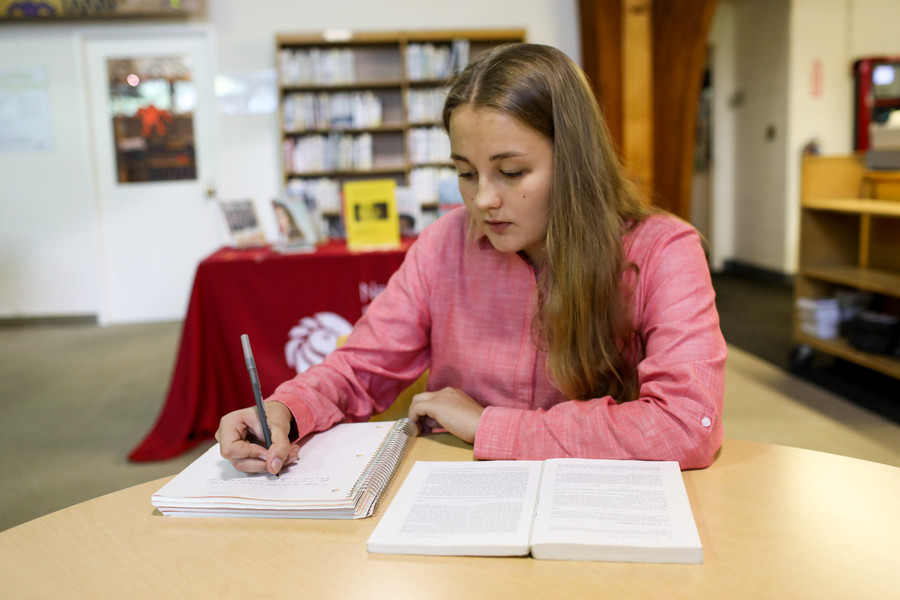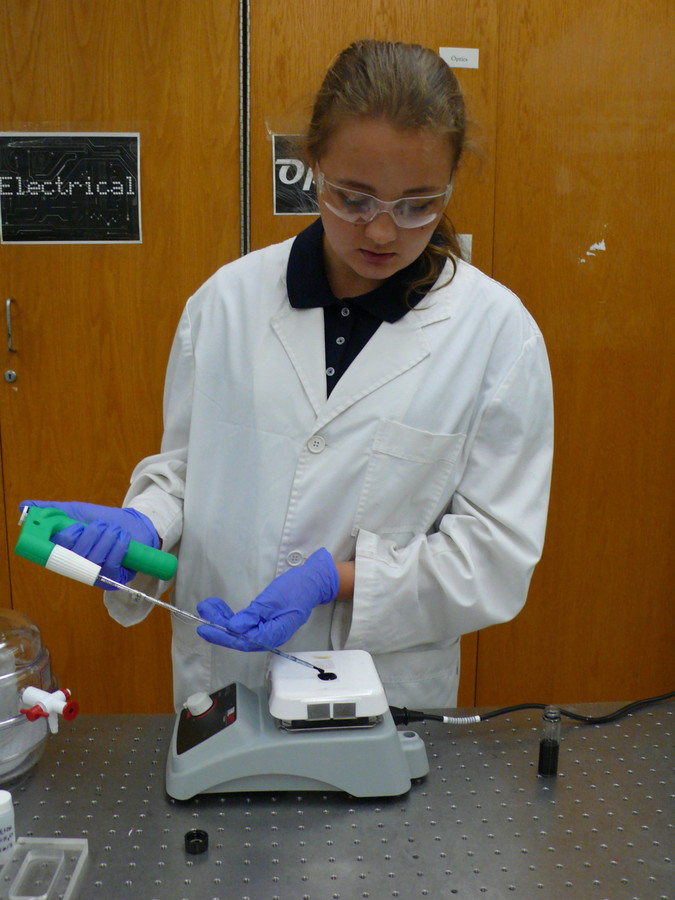Waste to energy wins teen $10,000 scholarship
How do you win a $10,000 scholarship? All 16-year-old Vera Zarubin had to do was demonstrate how to harness the heat generated by a device like a smartphone and turn that waste energy into electricity.
Sounds simple enough, but it’s scientific thinking like that from the Bronx High School of Science senior that could someday change the world.
Zarubin, of Riverdale, was among 20 winners from across the United States to become a fellow and scholarship winner from the Davidson Institute for Talent Development for her project “A Novel Methodology to Build Organic Thermoelectric Materials for Sustainable and Renewable Energy Applications.”
In short, Zarubin looks to develop a method to fabricate polymers that could, in theory, could capture heat from an electronic device by covering it, and then using that heat waste to actually power the device.
She developed both the technique and a small device to demonstrate her findings on a small scale.
Zarubin conducted her research at a physics lab at Queens College, a place which also taught her patience and persistence as she initially struggled with her project. Zarubin, however, gained inspiration and feedback from her peers through presentations at science fairs and research centers as she discussed her work.
Perhaps one the biggest research breakthroughs was learning to use an electron microscope. It gave Zarubin an even better look at her materials.
“It was amazing to see what was happening on a larger scale and what was happening with the energy properties …. and the interaction between the particles,” she said.
One of Zarubin’s most memorable moments came when she realized she could make a more inexpensive and similar device than a high-priced one she discovered a graduate student was working on. Hers was cheaper, she said, because she focused on using cost-effective polymers instead of the more precious gold he used.
That student “was spending hours on sample preparation at an expensive research facility,” Zarubin said. “On the other hand, I needed only 30 minutes, a small magnet, and a commercially available polymer.”
The confidence Zarubin acquired working on the project translated into more confidence at school. At Bronx Science, she would speak up more in classes, sharing ideas with her teachers and classmates.
Zarubin knew from the beginning she would need guidance in working on her waste heat project, so she reached out to Luat Vuong, assistant professor of physics at Queens College. Vuong and Zarubin had never met, so Zarubin’s initial email came as a surprise, Vuong said.
“When I interviewed her, I was struck by how articulate and intrinsically curious she was, and her broad knowledge,” Vuong said. “I didn’t do much to push her. She came up with her own ideas and I gave her feedback on her ideas. She really drove most of the effort herself.”
Zarubin’s life doesn’t all take place inside the lab. In fact, when she’s not working to make a difference, Zarubin is likely playing her clarinet. She’s a member of Carnegie Hall’s Studio 57, a group where teenagers learn from professionally trained artists and youth mentors, and participate in jam sessions.
Zarubin, who has played the clarinet for more than eight years and leaned toward solo performances at recitals, said the research project also made her more open to collaborations.
“I fell in love with playing in chamber ensembles and also small orchestras,” she said. “I really like the aspect of collaboration and really being able to communicate with other people” outside of science.
She and other teens also play for senior citizens through the Concerts in Motion series, a non-profit that plays music for senior citizens in their homes or in hospitals..
This fall, Zarubin travels to Washington, D.C., for the Davidson Institute’s awards ceremony. There, she’ll meet with a congressman and senator about her project.
Founded in 1999, the Nevada-based Davidson Institute supports high school students who score in the very top percentile on IQ and achievement tests, and operate on a college or graduate level, according to its website.
The institute awards scholarships up to $50,000 in fields like engineering, technology and music.
Zarubin has some advice for fellow young scientists.
“Don’t limit yourself to only exploring competitions or opportunities that your school supports,” she said.
“Don’t be afraid to approach decision-makers and push for policies that will benefit their countries and the world.
“Young scientists should think big and consider how to create system-wide change, and it starts with asking the right questions and sharing your ideas with other people.”









